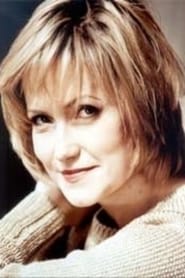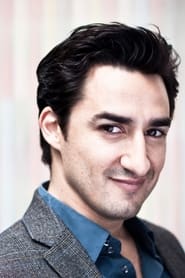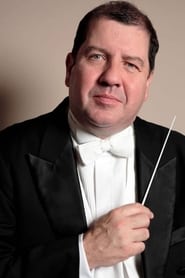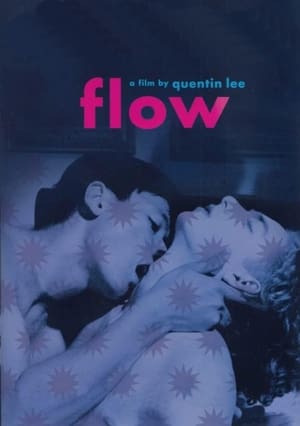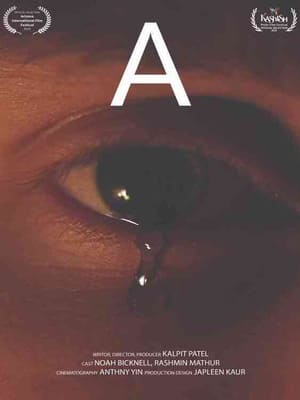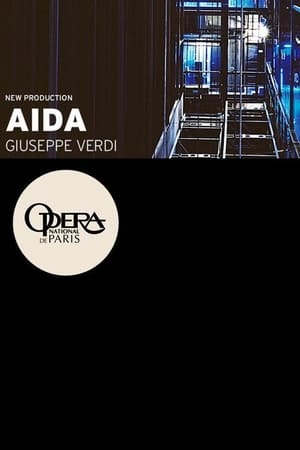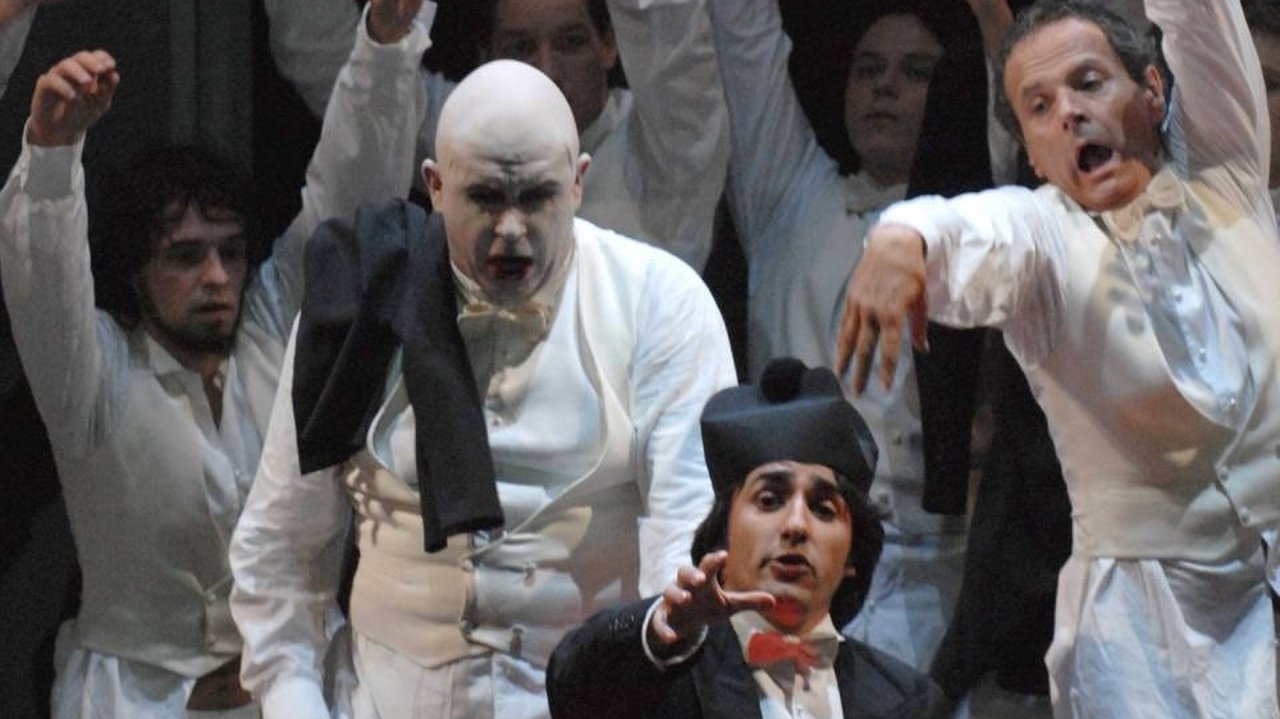
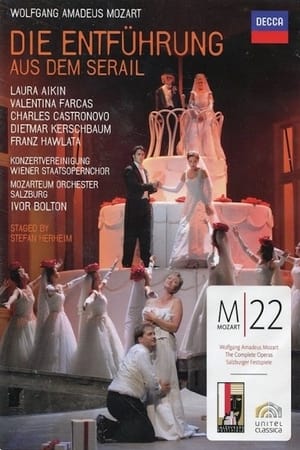
The Abduction from the Seraglio(2006)
Without question, this is an incredibly bizarre production. The revised storyline makes little sense, and there is a surprising amount of violence and sexual innuendo. However, the singers are superb, both vocally and in regard to their stage presence and acting, the orchestra plays beautifully, the chorus is wonderful, and the set is as clever as it is strange. It's definitely not for purists, or for someone new to this particular opera. But for someone who's seen Die Entfuhrung before, and is familiar enough with the original story to not miss it, watching Belmonte, Constanze, Blonde, Pedrillo, and Osmin embark on an entirely new adventure -- and push the boundaries of good taste -- is rather enjoyable.

Movie: The Abduction from the Seraglio
Top 6 Billed Cast
Blonde
Osmin
Pedrillo

Die Entfuhrung aus dem Serail
HomePage
Overview
Without question, this is an incredibly bizarre production. The revised storyline makes little sense, and there is a surprising amount of violence and sexual innuendo. However, the singers are superb, both vocally and in regard to their stage presence and acting, the orchestra plays beautifully, the chorus is wonderful, and the set is as clever as it is strange. It's definitely not for purists, or for someone new to this particular opera. But for someone who's seen Die Entfuhrung before, and is familiar enough with the original story to not miss it, watching Belmonte, Constanze, Blonde, Pedrillo, and Osmin embark on an entirely new adventure -- and push the boundaries of good taste -- is rather enjoyable.
Release Date
2006-01-02
Average
0
Rating:
0.0 startsTagline
Genres
Languages:
DeutschKeywords
Recommendations Movies
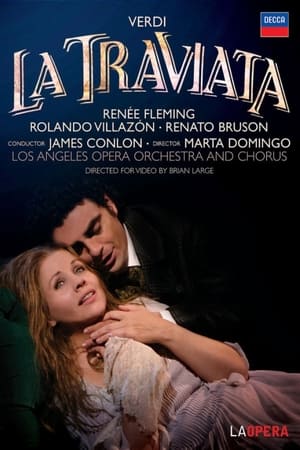 8.0
8.0La Traviata(it)
This superb 2006 production of the Los Angeles Opera's La Traviata stars Renée Fleming, who joins the ranks of the elite handful of sopranos whose vocal and acting talents make their portrayals memorable. Her Violetta Valéry is a vulnerable figure torn between self-indulgence and love, sacrificing personal happiness to become a victim of the social mores of mid-19th-century bourgeois France. Fleming's acting captures the complexity of the character and her vocalism is flawless. She negotiates the wild coloratura of Act One with aplomb, and is stunning in the lyric passages that pervade the opera, and touching in her scenes with her lover, Alfredo, and his father. Her singing is free of the mannerisms that have sometimes crept into her work and at the same time she brings countless personal touches to the role, phrasing and verbal emphases that shed fresh light on the character.
 4.9
4.9Tin Soldier(en)
An ex-special forces operative seeks revenge against a cult leader who has corrupted his former comrades, the Shinjas. This leader, known as The Bokushi, promises veterans a purpose and protection, but is revealed to be a destructive influence. The ex-soldier, Nash Cavanaugh, joins forces with military operative Emmanuel Ashburn to infiltrate the Bokushi's fortress and expose his reign of terror
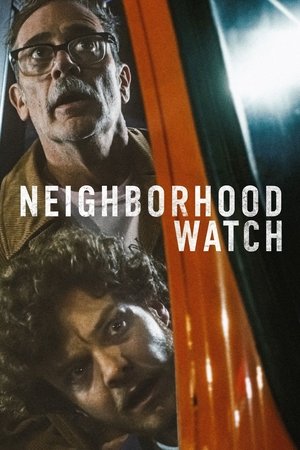 6.5
6.5Neighborhood Watch(en)
When a mentally ill young man thinks he witnesses an abduction and the police refuse to believe him, he reluctantly turns to his next door neighbor – a bitter, retired security guard – to help him find the missing woman.
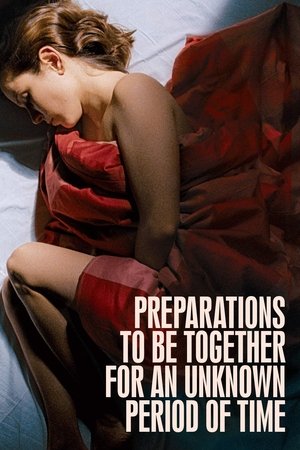 6.0
6.0Preparations to Be Together for an Unknown Period of Time(hu)
Márta, a 40-year-old neurosurgeon, falls in love. She leaves her shining American career behind and returns to Budapest to start a new life with the man she loves. But she waits for him at the Liberty Bridge in vain - he does not appear at their rendezvous. Márta starts to search for him desperately, but when she finally finds him, the love of her life claims that they have never met before.
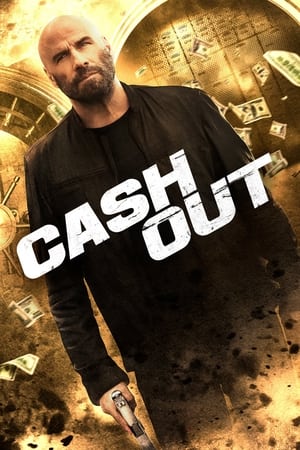 6.3
6.3Cash Out(en)
Criminal mastermind Mason is about to execute the score of a lifetime when his lover and key member of his crew, Decker, takes the team down and reveals she’s an undercover Interpol agent. Heartbroken, Mason escapes and retires from the life of crime until his younger brother Shawn is out of his league taking on a big bank heist all on his own. Mason has no choice left but to come to the rescue, while Interpol brings Decker in hoping to unnerve him. Before the SWAT teams storm the bank, Mason must use every tool in his arsenal to not only escape with the prize, but also the love of his life.
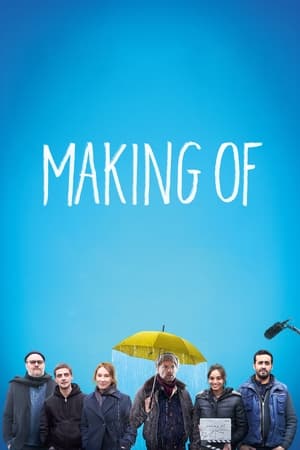 5.6
5.6Making Of(fr)
Simon, a well-known French filmmaker, starts shooting his next film. A story about workers fighting to protect their factory from being relocated. But nothing goes as planned... His producer Viviane wants to rewrite the ending and is threatening to cut the budget; his own crew goes on strike; his personal life is in shambles; and to make things worse, his lead actor Alain is an egocentric jerk. Joseph, an extra who wants to get into the film industry, agrees to direct the making of and shoot the behind-the-scenes. He takes his role very seriously and starts following around the crew, capturing all this mess... What follows is proof that the making of can sometimes be far better than the film itself!
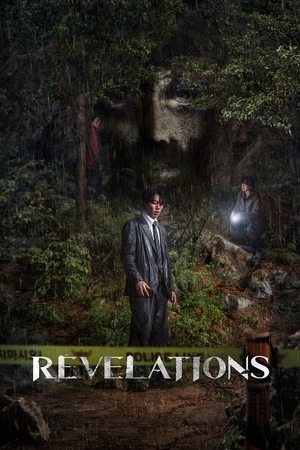 6.4
6.4Revelations(ko)
A pastor who believes in divine revelation and a detective haunted by visions pursue a missing person case — exposing their own demons in the process.
 6.4
6.4Lowlifes(en)
The survival instincts of a road-tripping family are put to the test when they have no other choice but to stay the night at a remote homestead.
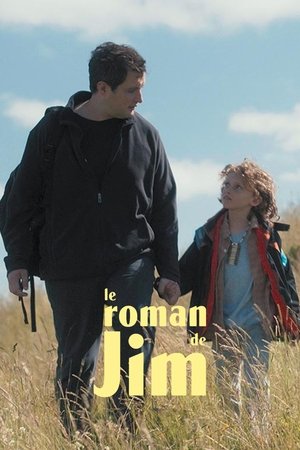 6.8
6.8Jim's Story(fr)
Aymeric runs into Florence, a former coworker, one evening in Saint-Claude in the Haut-Jura. She is six months pregnant and single. When she gives birth to Jim, Aymeric is there. They spend happy years together until Christophe, Jim's biological father, shows up... It could be the start of a melodrama, it's also the start of an odyssey into fatherhood.
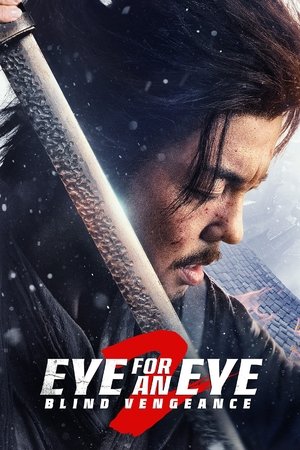 6.3
6.3Eye for an Eye 2(zh)
The blind swordsman, skilled in martial arts, named Cheng Xiazi (Xie Miao), accidentally saves Zhang Xiaoyu (Yang Enyou), who has suffered from the destruction of his family. Under the persuasion of the orphan Xiaoyu, Cheng reluctantly keeps him by his side and teaches him skills. Xiaoyu also waits for the opportunity to seek revenge.
 6.6
6.6The F-Word(ru)
The video refers to the current protests in Belarus, political struggle and state violence through the discourse of fascism. The topic of fascism and victory over it has for a long time been central to the state ideology of Belarus.
 6.3
6.3Raging Phoenix(th)
A young girl joins hands with a group of kung-fu masters to stop a notorious gang from abducting young women. However, the mission is compromised after they fail to locate the gang's hideout.
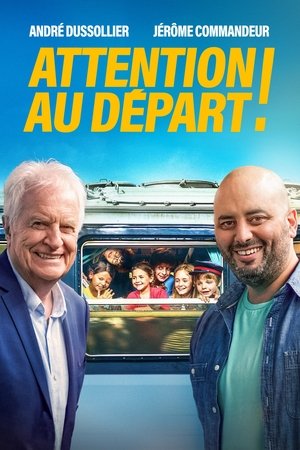 5.2
5.2All Aboard!(fr)
Finally, the holidays are here! Vlad and his friends are so excited! Jérôme, Vlad’s father, is in charge. André, the grandfather of Jeanne and Basile, is also here to help. Six kids, two adults, an eight-hour train trip. Nothing could go wrong. But Jérôme and André miss the train… and watch it leave the station with the kids on board. It’s the beginning of a crazy race for the unlikely duo. While the unsupervised children go wild and have the time of their life, André and Jérôme go through various delays and adventures…
 5.8
5.8Riff Raff(en)
A retired hitman's life is turned upside down when his ex-wife and son arrive unannounced during the holidays because they are on the run from his former mob associates.
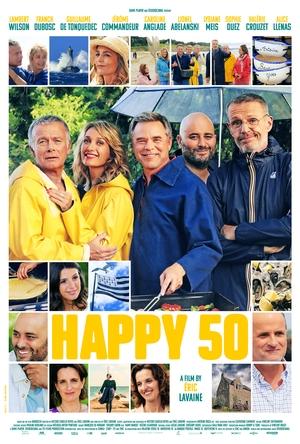 5.3
5.3Happy 50(fr)
To celebrate Yves’ 50th birthday, his friends plan to take him to the sunny paradise of Paros in Greece. But due to a cancelled flight, the holiday will take place in a far less glamorous and much rainier destination: Yves’ family home in Brittany. During the vacation, their bonds are challenged by Antoine’s constant complaining, Yves’ pride, Baptiste’s superstition and Laurent’s jealousy of Jean-Mich’s perfect life and family. On top of that, Antoine’s supposedly harmless joke – offering Yves a DNA ancestry test – has unforeseen consequences…
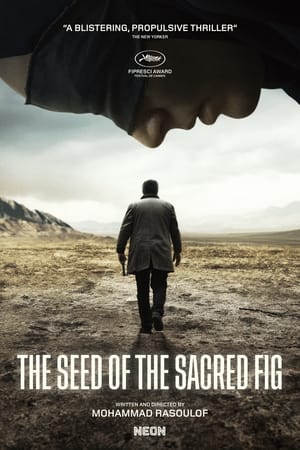 7.7
7.7The Seed of the Sacred Fig(fr)
Investigating judge Iman grapples with paranoia amid political unrest in Tehran. When his gun vanishes, he suspects his wife and daughters, imposing draconian measures that strain family ties as societal rules crumble.
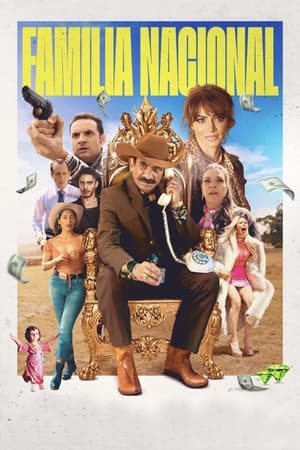 6.7
6.7National Family(es)
Don Poli, the patriarch of a family embedded in politics, faces the change of party in his state - after a hundred years in power - losing all his privileges. Humiliated and angry, he threatens to disinherit his family and leave to rebuild his life. This forces his children (Kippy, Ramses and Belén) to take extreme measures to ensure their future, causing everything that could go wrong to turn out worse.
Similar Movies
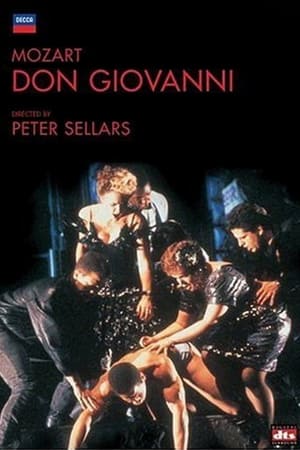 7.0
7.0Don Giovanni(it)
This production was originally staged for the Pepsico Summerfare Festival, The International Performing Arts Festival of the State University of New York at Purchase. Leaving the lyrics in their original Italian, acclaimed American director Peter Sellars transports Wolfgang Amadeus Mozart's "Don Giovanni" to a modern-day metropolis, nestling the opera's beloved characters among the brownstones of New York City's Harlem. Sellars's contemporary retelling of a classic musical tale is one of three performances in a Mozart series that also includes "Le Nozze di Figaro" and "'Così Fan Tutte."
 5.5
5.5Puccini: Turandot(it)
Franco Zeffirelli's magnificient staging of Puccini's final opera - a fairy tale set in a mythical China - is one of the most popular in the Met repertory. In this Live in HD production, Maria Guleghina takes on the title role and Marcello Giordani is Calaf, the unknown prince. Marina Poplavskaya and Samuel Ramey co-star, and Andris Nelsons conducts in his Met debut.
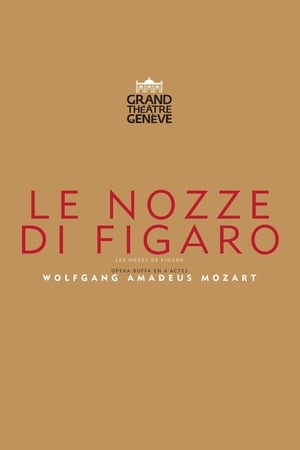 0.0
0.0The Marriage Of Figaro - Grand Théâtre de Genève(it)
The production bears the imprint of the conductor, Marko Letonja, and the director, Tobias Richter, whose understanding is ideal: both breathe a troupe spirit - specific to comedy - into this heterogeneous cast, which brings together young and old. Both give as much importance to recitatives as to arias and ensembles.
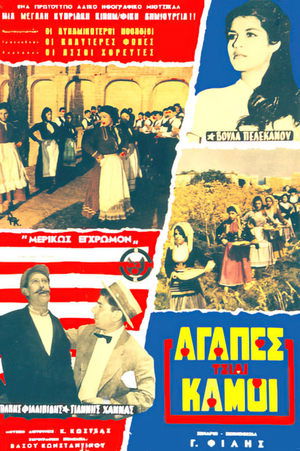 0.0
0.0Love Affairs and Heartbreaks(el)
This first film of Cyprus' first director, Giorgios Filis, depicts music and dance customs in the form and style of a folk opera, with traditional Cypriot dances and songs. The film consists of a folkloric inventory based on the folk culture of Cyprus, as well as on similar ritual happenings. The narration and dialogue are entirely in the Cypriot dialect and are characterized by a rhetorical and poetic mood.
 7.0
7.0Cavalleria rusticana(it)
Franco Zeffirelli directs these two legendary La Scala productions telling tragic tales of jealousy. Mascagni's Cavalleria Rusticana features performances by Elena Obraztsova, Plácido Domingo, and Renato Bruson. Leoncavallo's I Pagliacci stars Teresa Stratas, Plácido Domingo, and Juan Pons. Both are conducted by George Pretre. This production of Pagliacci earned director Franco Zeffirelli the coveted Emmy as Best Director in the category of Classical Music Programming.
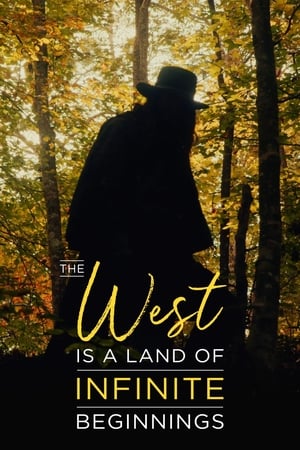 0.0
0.0The West is a Land of Infinite Beginnings(en)
Alone in the woods, a young man is pursued by a horrifying specter and by visions of his deceased sisters. A meditation on the precarious uncertainty of the American Dream and the role that uncontrollable forces play in our lives, The West is a Land of Infinite Beginnings is inspired by a harrowing scene from the opera Proving Up, by composer Missy Mazzoli and librettist Royce Vavrek.
Lady Macbeth of Mtsensk(ru)
A young woman, married to a wealthy man, but miserably lonely; trapped within a world ruled with an iron fist. Katerina is driven by a lust for life and for love. Her husband, though, is impotent; her father-in-law a tyrant. No wonder, then, that she longs to free herself from this yoke. When Sergei starts work on the family estate, she sees in him a chance for salvation. However, their subsequent affair marks the beginning of a descent into crime.
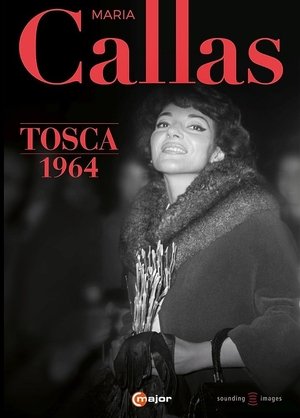 0.0
0.0Maria Callas Sings Tosca, Act II(en)
At the beginning of 1964, the music world experiences something completely unexpected. Maria Callas returns to the opera stage as the prima donna. Her “Tosca” at the Royal Opera House becomes a sensation. Maria Callas wants to show everyone once again that she deserves the title of “prima donna assoluta.” On the condition that star director Franco Zeffirelli take over the direction, the exceptional singer agrees to sing the role of Tosca. The BBC recorded the 2nd act of the opera for television. It is one of the most dramatic acts in opera history: in order to free the painter Cavaradossi from the hands of torturers, Tosca ends up murdering the police chief Scarpia. The film footage is one of the rare opportunities to see Maria Callas in an opera performance and to experience her highly emotional performance art and vocal abilities...
 8.1
8.1Die Walküre(de)
The gorgeous and evocative Otto Schenk/Günther Schneider-Siemssen production continues with this second opera in Wagner’s Ring cycle. Hildegard Behrens brings deep empathy to Brünnhilde, the favorite daughter of the god Wotan (James Morris) who nevertheless defies him. Morris’s portrayal of Wotan is deservedly legendary, as is Christa Ludwig, as Fricka. Jessye Norman and Gary Lakes are Sieglinde and Siegmund, and Kurt Moll is the threatening Hunding. James Levine and the Met orchestra provide astonishing color and drama. (Performed April 8, 1989)
 7.5
7.5Siegfried(de)
Siegfried is the third of the four operas that constitute Der Ring des Nibelungen (The Ring of the Nibelung), by Richard Wagner.
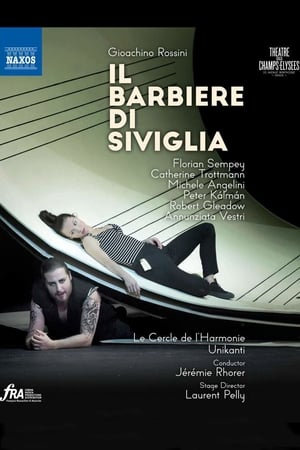 0.0
0.0Rossini: Il Barbiere di Siviglia (Théâtre des Champs-Élysées, 2017)(en)
This is Laurent Pelly’s Théâtre des Champs-Élysées staging of Rossini’s Il barbiere di Siviglia, with a cast featuring Florian Sempey as Figaro, Catherine Trottmann as Rosina, and Michele Angelini as Il Conte Almaviva. Jérémie Rhorer conducts Le Cercle de l-Harmonie.
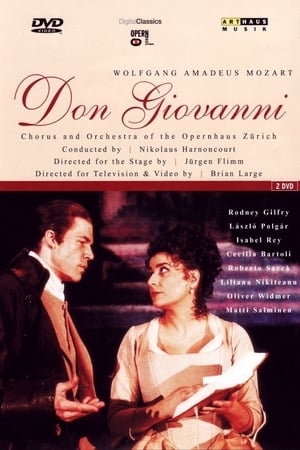 10.0
10.0Mozart: Don Giovanni (Zurich Opera House)(it)
Live 2001 production from the Zurich Opera House of the classic Mozart/Da Ponte opera, with Nikolaus Harnoncourt conducting and directed for television and video by Brian Large.
 0.0
0.0Poulenc's The Human Voice / Bartók's Bluebeard's Castle(en)
Running through Bartók’s disenchanted tale, whose haunting music was initially condemned as unplayable, and the expression of despair in Poulenc’s monologue, the director Krzysztof Warlikowski perceives a shared dramatic thread, a shared feminine consciousness and a shared sense of imprisonment and suffocation: for the woman who penetrates the confines of Bluebeard’s castle and Elle, the woman who clings to a telephone conversation with a man as the only thing worth living for, are condemned to share the same fate. And this man she speaks to, does he really exist? Unless the director has interpreted Cocteau’s words to the letter and the telephone has become a “terrifying weapon that leaves no trace, makes no noise”…
 6.8
6.8Così fan tutte(it)
Who loves whom in Così fan tutte, Mozart’s and Da Ponte’s cruelly comic reflection on desire, fidelity and betrayal? Or have the confusions to which the main characters subject one another ensured that in spite of the heartfelt love duets and superficially fleetfooted comedy nothing will work any longer and that a sense of emotional erosion has replaced true feelings? Così fan tutte is a timeless work full of questions that affect us all. The Academy Award-winning director Michael Haneke once said that he was merely being precise and did not want to distort reality. In only his second opera production after Don Giovanni in 2006, he presents what ARTE described as a “disillusioned vision of love in an ice-cold, realistic interpretation”.
 7.0
7.0Operette(de)
A musician is offered a job in Vienna as stage director, but his disagreements with the aristocratic opera manager end in abrupt firing in spite of a mutual attraction. He's quickly engaged by another theatre and becomes famous for his lavish stage productions and fine acting, which begins their golden age with Suppé and Strauss.
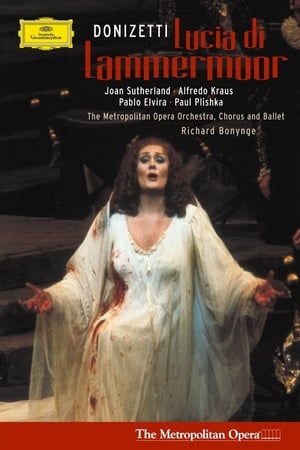 0.0
0.0Lucia di Lammermoor(it)
This telecast offers a rare opportunity to see the legendary Joan Sutherland in the role that first catapulted her to international stardom. She drove audiences wild by the way her opulent voice caressed the music’s long phrases and sprinted effortlessly through the fiendish runs, trills, embellishments and stratospheric high notes. One of the glories of the operatic world, her portrayal of Donizetti’s hapless heroine is a multifaceted and moving characterization. The incomparable tenor Alfredo Kraus is Edgardo, the man Lucia loves but cannot have. (Performance taped November 13, 1982. Broadcasted September 28, 1983.)
 0.0
0.0Puccini: La bohème(it)
"La Bohème" is one of Giacomo Puccini's most popular and timeless works and the second-most performed opera at New York's Metropolitan Opera. This production, directed by the legendary Franco Zeffirelli, features José Carreras, Teresa Stratas, Renata Scotto and Richard Stilwell. The opera is replete with extraordinary visual beauty as it presents the tragic story of young bohemians struggling to make it in the world.
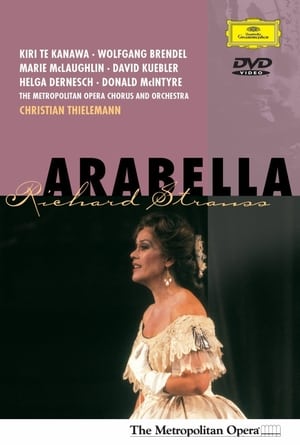 0.0
0.0Arabella(en)
Arabella, Op. 79, is a lyric comedy or opera in three acts by Richard Strauss to a German libretto by Hugo von Hofmannsthal, their sixth and last operatic collaboration.
